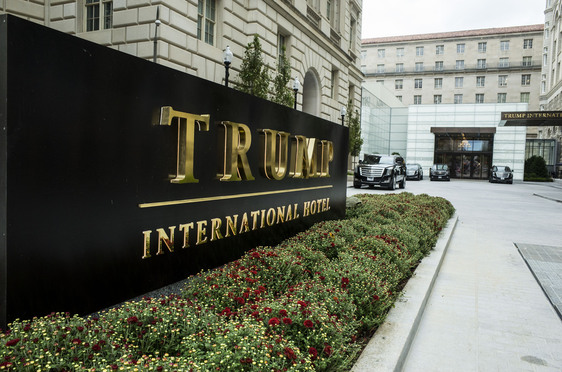The Foreign Emoluments Clause was forged of the Framers’ hard-won wisdom. It is no relic of a bygone era, but rather an expression of insight into the nature of the human condition and the preconditions of self-governance. And applied to Donald J. Trump’s diverse dealings, the text and purpose of the Foreign Emoluments Clause speak as one: this cannot be allowed.
The conflicts suit was assigned Monday to U.S. District Judge Ronnie Abrams, a former Davis Polk & Wardwell lawyer who was confirmed in 2012.
The lawyers who filed the lawsuit on behalf of CREW include Gupta; Harvard Law School professor Laurence Tribe; Erwin Chemerinsky, dean of the University of California, Irvine School of Law; and Zephyr Teachout of Fordham Law School. Tribe co-wrote an analysis of the Emoluments Clause for the Brookings Institution in December along with Norman Eisen and Richard Painter, who are listed on the complaint as chairman and vice chair, respectively, of the board of directors of CREW.
A press representative for Trump wasn’t immediately reached for comment Monday.
Trump’s lawyers have pushed back on the idea that Trump’s business interests expose him to any conflicts of interest. Still, Trump recently moved to distance himself from his companies, putting greater leadership in the hands of his two adult sons.
Sheri Dillon, a Morgan, Lewis & Bockius partner representing Trump, argued recently that the emoluments clause does not apply to fair-market-value transactions. “No one would have thought when the Constitution was written that paying your hotel bill was an emolument,” Dillon said at a news conference. “Instead, it would have been thought of as a value-for-value exchange; not a gift, not a title, and not an emolument.”
Sunday’s “Rise Above” panel discussions at the Mayflower Hotel in Washington examined conflicts of interest, women’s rights, civil and voting rights and the U.S. Supreme Court. Speaking with Gupta, Joshua Matz, an associate at Robbins, Russell, Englert, Orseck, Untereiner & Sauber, called Trump’s reasoning about conflicts “very unimpressive.”
“Ordinarily, people make profit in fair-market-value transactions. That’s why they enter into them,” Matz said. “And so if the Trump Organization is making substantial profits from foreign nations, the fact that it’s doing it at the local fair market rate doesn’t mean that the huge influx in business and therefore profit from said foreign power is not a benefit from a foreign power to Trump.”
Gupta acknowledged on Sunday the challenges posed by any lawsuit against Trump that alleged conflicts of interest.
“The merits are actually the easiest question you confront if you’re trying to construct one of these lawsuits, either under the domestic or foreign emoluments clauses,” he said. “The harder problems are going to be standing. So I think it’s really incumbent on folks like you and your networks to start investigating these Trump conflicts and to think about who’s affected and how they can have standing.”
This content has been archived. It is available through our partners, LexisNexis® and Bloomberg Law.
To view this content, please continue to their sites.
Not a Lexis Subscriber?
Subscribe Now
Not a Bloomberg Law Subscriber?
Subscribe Now
LexisNexis® and Bloomberg Law are third party online distributors of the broad collection of current and archived versions of ALM's legal news publications. LexisNexis® and Bloomberg Law customers are able to access and use ALM's content, including content from the National Law Journal, The American Lawyer, Legaltech News, The New York Law Journal, and Corporate Counsel, as well as other sources of legal information.
For questions call 1-877-256-2472 or contact us at [email protected]





